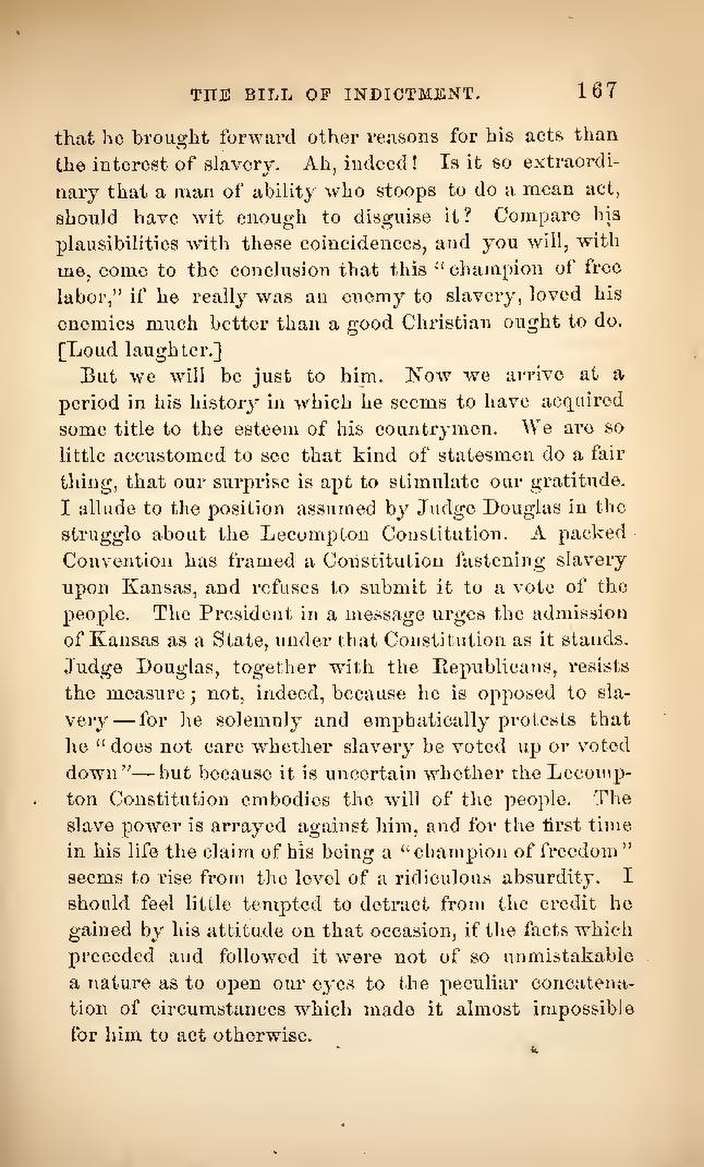that he brought forward other reasons for his acts than the interest of slavery. Ah, indeed! Is it so extraordinary that a man of ability who stoops to do a mean act, should have wit enough to disguise it? Compare his plausibilities with those coincidences, and you will, with me, come to the conclusion that this “champion of free labor,” if he really was an enemy to slavery, loved his enemies much better than a good Christian ought to do. [Loud laughter.]
But we will be just to him. Now we arrive at a period in his history in which he seems to have acquired some title to the esteem of his countrymen. We are so little accustomed to see that kind of statesmen do a fair thing, that our surprise is apt to stimulate our gratitude. I allude to the position assumed by Judge Douglas in the struggle about the Lecompton Constitution. A packed Convention has framed a Constitution fastening slavery upon Kansas, and refuses to submit it to a vote of the people. The President in a message urges the admission of Kansas as a State, under that Constitution as it stands. Judge Douglas, together with the Republicans, resists the measure; not, indeed, because he is opposed to slavery—for he solemnly and emphatically protests that he “does not care whether slavery be voted up or voted down”—but because it is uncertain whether the Lecompton Constitution embodies the will of the people. The slave power is arrayed against him, and for the first time in his life the claim of his being a “champion of freedom” seems to rise from the level of a ridiculous absurdity. I should feel little tempted to detract from the credit he gained by his attitude on that occasion, if the facts which preceded and followed it were not of so unmistakable a nature as to open our eyes to the peculiar concatenation of circumstances which made it almost impossible for him to act otherwise.
